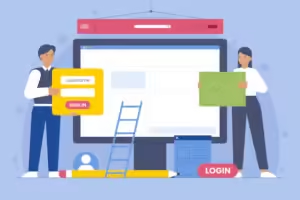How to Master the Unspoken Rules of Coding for Novice and Sage Developers
Introduction to Coding and Its Unspoken Rules
Coding is more than just writing lines of code. It’s a craft, an art form that requires understanding and finesse. As you delve into the world of programming, you’ll quickly discover that there are unspoken rules—guidelines not found in textbooks or online courses—that can make all the difference in your journey as a developer.
Whether you’re stepping into this realm for the first time or you’re a seasoned coder with years under your belt, grasping these hidden conventions is essential. They shape how teams collaborate, how projects evolve, and even how individual developers grow their skills.
Understanding these nuances can elevate your coding experience from novice struggles to sage-like expertise. So let’s unravel these mysteries together and explore what it means to master the unspoken rules of coding for both novice and sage developers alike!
The Importance of Knowing the Unspoken Rules
Understanding the unspoken rules of coding is crucial for both novice and sage developers. These unwritten guidelines often dictate how teams collaborate, share knowledge, and approach problem-solving.
For novices, grasping these subtle nuances can accelerate their learning curve. It helps them fit into established workflows and enhances communication with experienced peers. This familiarity fosters a sense of belonging in what can be an intimidating field.
Sage developers also benefit from recognizing these rules when mentoring newcomers. They create an environment that encourages questions and growth, ultimately leading to better team dynamics.
Ignoring these unspoken norms can lead to misunderstandings or friction within teams. A solid grasp of this silent language makes navigating complex projects smoother and more efficient for everyone involved.
Understanding the Different Levels of Coding Experience
Coding experience spans a broad spectrum. At one end, we have novice developers, often grappling with basic concepts and syntax. They’re learning to turn ideas into functioning code but might feel overwhelmed by the vastness of programming languages.
As we move up the ladder, intermediate coders emerge. These individuals possess foundational knowledge and can tackle more complex projects. They’ve begun to understand best practices but may still make rookie mistakes.
At the top are sage developers—seasoned pros who navigate intricate systems effortlessly. They design robust architectures and mentor others while continuously adapting to new technologies.
Each level brings unique challenges and insights. Understanding these differences fosters better communication among team members, paving the way for effective collaboration in coding environments.
Common Mistakes Made by Novice Coders
Novice coders often dive headfirst into projects without a solid understanding of fundamental principles. This eagerness can lead to overlooking documentation, which is crucial for effective coding practices. Ignoring it may result in inefficient code or bugs that are hard to track down.
Another frequent mistake is neglecting version control systems. Failing to use tools like Git can create chaos when collaborating on projects. Changes get lost, and it’s challenging to revert back if something goes wrong.
Additionally, many new developers struggle with debugging. They might spend too much time trying to fix the symptoms rather than identifying the root cause of an issue.
Novices sometimes underestimate the importance of clean code. Writing messy or convoluted code not only makes it difficult for others to read but also complicates future maintenance efforts.
Tips for Navigating the Unspoken Rules as a Novice Coder
As a novice coder, navigating the unspoken rules can feel daunting. Start by absorbing feedback with an open mind. It’s crucial to view criticism as a stepping stone rather than a setback.
Engage in discussions with your peers or mentors. Ask questions and seek clarification on coding conventions and best practices. This willingness to learn fosters growth.
Documentation is your friend. Familiarize yourself with code comments and documentation standards within your team or project. Well-documented code enhances readability for everyone involved.
Don’t hesitate to pair program when possible. Collaborating allows you to witness firsthand how experienced developers tackle problems while adhering to those subtle guidelines.
Keep practicing humility and patience throughout your journey in coding. Remember that every expert was once a beginner, learning their way through the intricate landscape of programming.
Advice for Seasoned Developers on Working with Novices
Mentoring novice developers can be a rewarding experience. Patience is key. Remember, they are learning and may not grasp concepts as quickly as you do.
Encourage questions. Open communication fosters a supportive environment where novices feel comfortable seeking help. Your insights can demystify complex topics for them.
Share your experiences, including mistakes you’ve made along the way. This transparency helps build trust and shows that everyone has room to grow.
Set realistic expectations. Novices won’t code like seasoned pros right away. Celebrate small victories to motivate their progress and boost confidence.
Offer constructive feedback instead of harsh criticism. Frame suggestions positively to guide their development while maintaining enthusiasm for coding challenges ahead.
Conclusion: Embracing the Unspoken Rules and Improving Your Coding Skills
Mastering the unspoken rules of coding can be a transformative experience for both novice and sage developers. Recognizing these nuances not only enhances your skills but also fosters collaboration within teams. For beginners, understanding the culture around coding and what’s expected can create a smoother entry into this complex world.
For seasoned developers, being mindful of how they interact with novices is equally important. Patience and mentorship play pivotal roles in bridging the gap between experience levels. Both parties benefit from an open dialogue about challenges faced in real-world scenarios.
Embracing these unspoken rules leads to more efficient workflows, reduced frustration, and ultimately better code quality. As you navigate your coding journey—whether starting out or deepening expertise—keep these insights close at hand. They serve as guiding principles that elevate not just individual capabilities but also team dynamics across all levels of experience in the tech landscape.














Post Comment